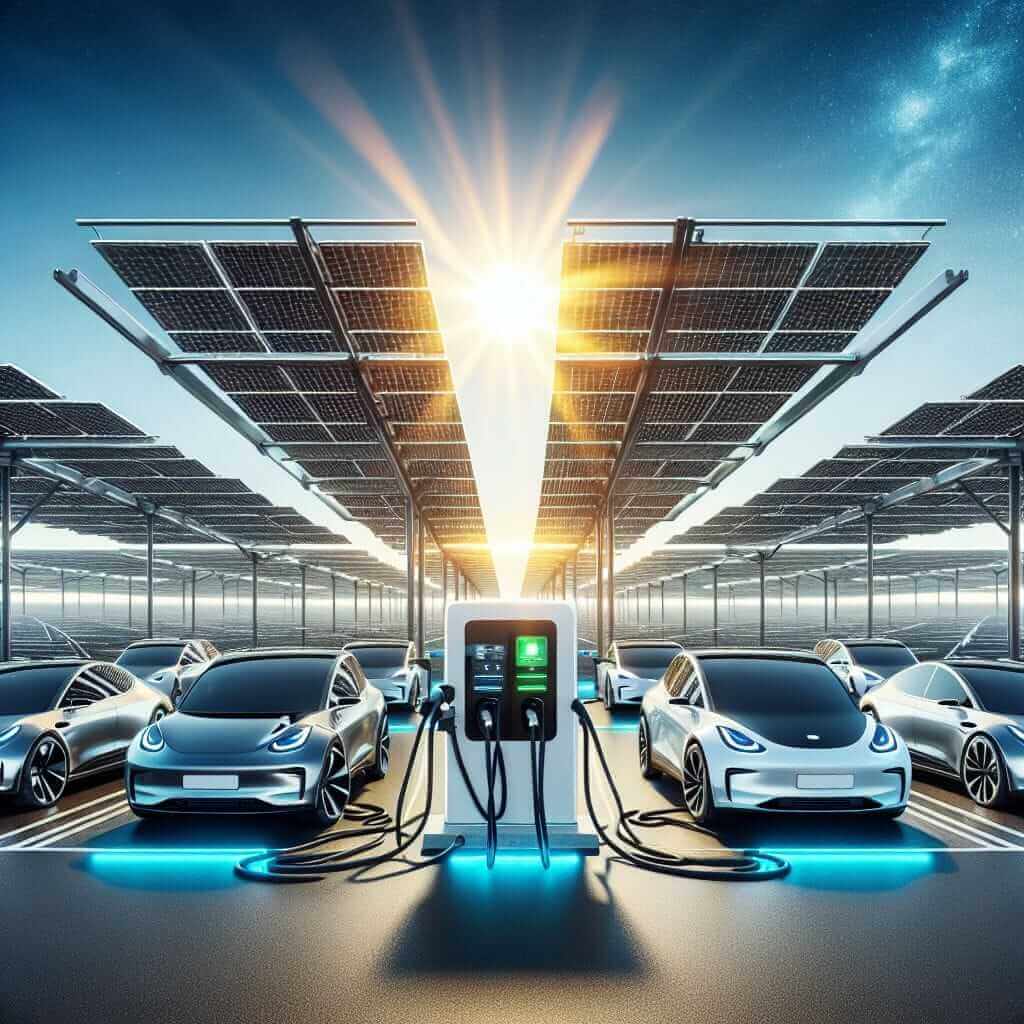The topic of “Electric vehicles and the environment” is becoming increasingly prevalent in IELTS Writing Task 2. As concerns about climate change and sustainability grow, it’s highly likely that this topic will continue to feature prominently in future exams. Therefore, understanding how to effectively address this issue in your writing is crucial for achieving a high band score.
Several past IELTS essay questions have touched upon this theme. Here are a few examples:
- “Some people believe that the best way to improve the environment is to tax corporations that produce pollution. Others believe that individuals should be responsible for reducing their own carbon footprint. Discuss both views and give your own opinion.”
- “The increase in the production of consumer goods has a significant impact on the environment. What are the causes of this? What measures can be taken to address this problem?”
Sample Essay Question
For this guide, we will focus on the following essay question:
The increasing production and use of electric vehicles are the best way to solve the world’s environmental problems. To what extent do you agree or disagree?
Essay Analysis
This question requires you to present a clear stance on the effectiveness of electric vehicles as a solution to global environmental issues. It’s crucial to acknowledge that while electric vehicles offer significant environmental advantages, they are not a singular solution. Your essay should explore both the benefits and limitations of electric vehicles in addressing environmental concerns.
Model Essay
The detrimental effects of climate change have spurred a global search for sustainable solutions, with electric vehicles (EVs) frequently touted as a panacea for the world’s environmental woes. While the rise of EVs undoubtedly contributes to a greener future, I disagree that they alone can fully address the multifaceted environmental challenges we face.
Advocates of EVs rightly emphasize their role in reducing greenhouse gas emissions. Unlike conventional vehicles reliant on fossil fuels, EVs produce zero tailpipe emissions, mitigating the release of harmful pollutants into the atmosphere. This shift towards cleaner transportation is crucial in combating air pollution and mitigating the effects of climate change. Furthermore, advancements in battery technology and the expansion of charging infrastructure continuously enhance the feasibility and appeal of EVs, encouraging wider adoption and further reducing our reliance on fossil fuels.
However, it is essential to acknowledge the limitations of EVs in tackling the entirety of our environmental problems. The production of EVs, particularly their batteries, necessitates the extraction of raw materials, often through environmentally damaging mining practices. Additionally, the electricity used to power EVs often originates from power plants that rely on fossil fuels, meaning the environmental impact depends on the source of energy generation. Furthermore, focusing solely on EVs as a solution risks neglecting other crucial aspects of environmental sustainability, such as promoting public transportation, encouraging cycling and walking, and implementing sustainable urban planning.
In conclusion, while the increasing adoption of electric vehicles signifies a positive step towards a more sustainable future, it is unrealistic to view them as a silver bullet solution to global environmental problems. A holistic approach encompassing renewable energy sources, responsible consumption patterns, and a systemic shift towards sustainable practices across all sectors is essential to effectively mitigate the environmental challenges confronting our planet.
Word count: 295 words

Writing Tips
- Vocabulary: Utilize a wide range of vocabulary related to the environment, technology, and sustainability.
- Grammar: Pay close attention to using complex sentence structures and accurate grammar to express your ideas clearly and effectively.
- Structure: Follow a clear essay structure (introduction, body paragraphs, conclusion) to present your arguments coherently.
- Evidence: Support your claims with relevant examples and evidence to strengthen your arguments.
- Balance: Present a balanced view by acknowledging both the benefits and limitations of electric vehicles in addressing environmental issues.
Vocabulary
- Panacea (n.) /pænəˈsiːə/: A solution or remedy for all difficulties or diseases.
- Detrimental (adj.) /ˌdɛtrɪˈmɛntəl/: Causing harm or damage.
- Mitigate (v.) /ˈmɪtɪɡeɪt/: To make something less severe, serious, or painful.
- Feasibility (n.) /ˌfiːzəˈbɪləti/: The state of being possible and likely to be achieved.
- Extraction (n.) /ɪkˈstrækʃən/: The action of removing something, especially using effort or force.
Conclusion
Mastering the “Electric vehicles and the environment” theme in IELTS Writing Task 2 requires a nuanced understanding of the topic, strong vocabulary, and the ability to present a balanced argument. By studying model essays and practicing your writing skills, you can confidently tackle this important topic in your IELTS exam. To further your understanding of environmental issues in the context of IELTS, explore related topics such as ethical consumption and environmental impact or the role of ethical consumerism in environmental protection.